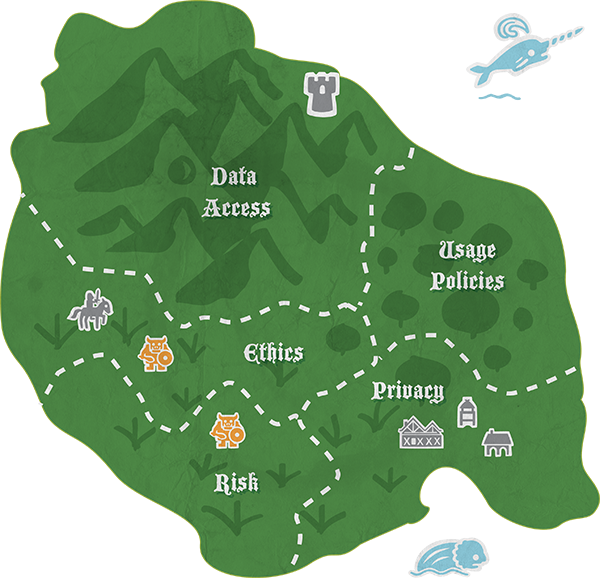“Human errors and systems glitches caused nearly two-thirds of data breaches globally in 2012.”
- Ponemon Institute and Symantec
Nothing has accelerated the proliferation and sharing of personal data more than the internet. Some may disagree, but unless you’re living a technology-free life – by choice or not – then it’s hard to dismiss the impact the internet has had on both our personal and professional lives. From email to social networks to online shopping and travel, we’re generating a crazy amount of online personal data every day. Who’s keeping an eye on that data and who’s protecting it?
The irony is that when it comes to our workplaces, we have historically held IT responsible for securing our corporate data. If there’s a data breach, we contact IT. If there are application or data access issues, we contact IT. If there are privacy issues, we contact IT (and probably Legal).
But is this really the right model for the internet age?

A Big Data Best Practice for Data Security
If we truly deem our data as valuable – whether it's corporate or personal, big or small – just like we do our financial investments, then perhaps securing data is not just IT’s responsibility anymore. Maybe it’s time for us to foster a culture where data is treated as a corporate asset. A logical place to start could be with social data – yours, your company’s and your coworkers. Who’s keeping an eye on this data and who’s protecting your company?
The answer should be “all of us.”
The bottom line is this: Whether the data is stored internally or it’s available externally on a public network, we can’t expect IT to monitor and manage it all. We need to be vigilant with our corporate data—as if it were our own money—and help protect our companies from suspicious or fraudulent activity.
A Marketer’s Role in Keeping Customer Data Secure
As marketers, we’re in the business of collecting and using customer data. And with customers becoming more aware of (and alarmed about) data security and privacy issues in both their professional and personal lives – it behooves us be careful with and responsible for the data we collect. Because if it’s not us, then who?
In one of my recent articles about data breaches, If You Think Data Security is IT’s Responsibility, Think Again, I highlight a few security questions we should all be asking:
- Is data security taken seriously at your organization? If not, why not?
- Are you encrypting sensitive data? Whether the data is being stored on-premises or in the cloud, make sure proper encryption (and decryption) techniques and practices are in place.
- What proactive steps have you taken to make sure the data you’re collecting is secure? Even though you personally may never be asked by a customer, be prepared to answer, “How is my data being secured?”
- Who can access the customer data you’re collecting? And who’s actually accessing this data? It’s important to keep data on a need-to-know basis and make sure access is revoked when an employee leaves the company.
We all have a part to play when it comes to keeping our company’s data secure. And even with IT in the lead role, we know that with any good production, it takes the entire cast – in front of the curtain and behind it - to capture and captivate a distinguishing audience.
Key Takeaways for Marketers
- Data – big and small – is one of your organization’s most valuable assets. Secure it.
- Don’t assume that IT has it all covered. Do your part.
- Beware of the Big Data Narwhal on the North Shore of the island. He may be getting away with your data.
- Your online social activity is a reflection on you. And your company. Be mindful.
This is the 7th post in a 10-post series, “A marketer’s journey through the Big Data Archipelago.” This series explores 10 key best practices for big data and why marketers should care. Our next stop is the People Isle, where we’ll talk about focusing on individual roles and skills.

5 Comments
Very nice post, well done.
The other end of solely relying on IT solving security can be IT ignoring the business requirements on those security aspects. Perhaps an unexpected possibility but happens.
There is a lot to improve and your post is helpful.
Thank you, Jaap. Yes, I'm confident your scenario happens often - more frequently on a smaller scale than on a larger one. While most people would agree that data security is very important, security requirements often fall behind the more visible, more "valuable" requirements. That is, until the data is breached in some fashion. My hope is that the data security issue will continue to escalate in this emerging movement with big data and IoT.
Pingback: Stop #7 in the Big Data Archipelago Journey: The Data Security Isle | The Cyberista Says
Pingback: The final stop in the Big Data Archipelago journey: the Strategy Isle - Customer Analytics
Pingback: The Final Stop in the Big Data Archipelago Journey: The Strategy Isle | The Cyberista Says